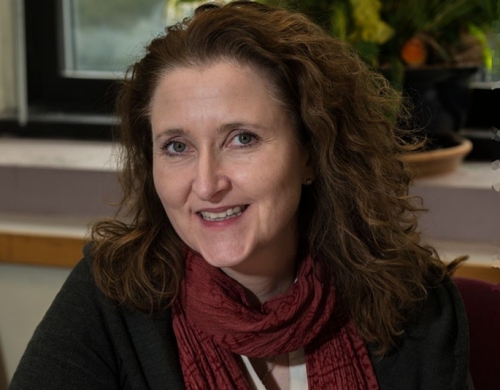Lynch School of Education Associate Professor Laura O’Dwyer has been awarded a $3.8 million grant from the National Science Foundation for her project “Supporting Success in Algebra,” a four-year quasi-experiment designed to examine the impact of the Transition to Algebra intervention, a supplemental math course provided to high school freshmen.
Algebra is a cornerstone of a college prepatory curriculum, said O’Dwyer, who will conduct the study with the Education Development Center, which created the Transition to Algebra intervention.

Successful completion of algebra by ninth graders is linked to higher rates of graduation, college enrollment and completion, and workforce preparation. Ninth grade in general is an important year of academic transition, according to O’Dwyer, a professor in the Lynch School’s Department of Educational Research, Measurement and Evaluation.
“Ninth grade is a pivotal year for high school students: Studies have shown that poor performance in ninth grade, especially course failure, substantially increases students’ risk of dropping out of high school and falling off track for college eligibility.
“Moreover, access to algebra appears to be even more important for low-income and minority students,” she added. “The TTA intervention was developed because success in algebra is a critical milestone for high school students.”
Implementing a quasi-experiment in the field with as many as 5,000 students and their teachers, O’Dwyer will look at the effectiveness of Transition to Algebra, which tries to establish the “logic of algebra” by connecting arithmetic pattern and algebraic structure, with a focus on “habits of mind” to create a coherent mathematical storyline, she said.
Transition to Algebra, O’Dwyer notes, is organized around five key mathematical ways of thinking: puzzling and persevering, seeking and using structure, using tools strategically, describing repeated reasoning, and communicating with precision.
“We hope that our findings will provide a deeper understanding of the curriculum and system supports that promote success for students at risk of failure in algebra,” O’Dwyer said. “By generating knowledge about ways to improve the achievement and attitudes of underprepared algebra students, we expect that the results of this work can help to broaden students’ participation in mathematics, through and beyond algebra courses in high school.”
O’Dwyer said she is tackling the challenges presented by the scope of the study. She and her colleagues are currently developing instruments for field study and data collection and recruiting school districts to participate in the research.
“Our research plans are quite ambitious – we plan to implement a quasi-experimental pre-post research design in 70 schools,” said O’Dwyer. “Overall, we will be working with about 350 teachers serving over 5,000 students. Getting such a large study up and running in the field is both challenging and exciting.”
-Ed Hayward / University Communications



